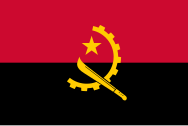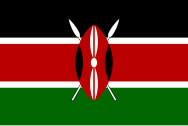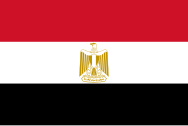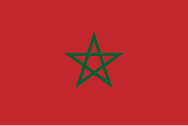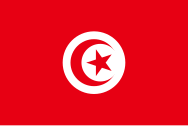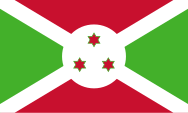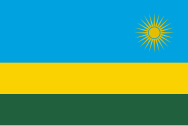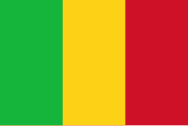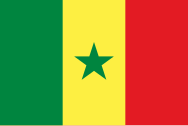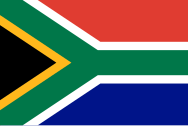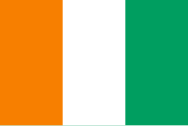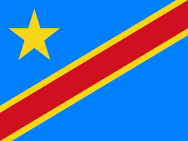- Sudan - History
- Sudan - Kingdoms
- Sudan - Royal Archives
- Sudan - Treaties
- Sudan - Economy
- Sudan - Technology
- Sudan - Diaspora
- Sudan - Culture
- Sudan - Migration
- Sudan - Museums
- Sudan - Architecture
- Sudan - Education
- Sudan - Geneology
- Sudan - Music
- Sudan - Art
- Sudan - Dance
- Sudan - General
- Sudan - People
Sudan

Country Flag
Sudan, officially the Republic of the Sudan, is a country in Northeast Africa. It borders the Central African Republic to the southwest, Chad to the west, Libya to the northwest, Egypt to the north, the Red Sea to the east, Eritrea and Ethiopia to the southeast, and South Sudan to the south. Sudan has a population of 50 million people as of 2024 and occupies 1,886,068 square kilometres (728,215 square miles), making it Africa's third-largest country by area and the third-largest by area in the Arab League. It was the largest country by area in Africa and the Arab League until the secession of South Sudan in 2011; since then both titles have been held by Algeria. Sudan's capital and most populous city is Khartoum.
The area that is now Sudan witnessed the Khormusan (c. 40000–16000 BC), Halfan culture (c. 20500–17000 BC), Sebilian (c. 13000–10000 BC), Qadan culture (c. 15000–5000 BC), the war of Jebel Sahaba, the earliest known war in the world, around 11500 BC, A-Group culture (c. 3800–3100 BC), Kingdom of Kerma (c. 2500–1500 BC), the Egyptian New Kingdom (c. 1500–1070 BC), and the Kingdom of Kush (c. 785 BC – 350 AD). After the fall of Kush, the Nubians formed the three Christian kingdoms of Nobatia, Makuria, and Alodia.
Between the 14th and 15th centuries, most of Sudan was gradually settled by Arab nomads. From the 16th to the 19th centuries, central and eastern Sudan were dominated by the Funj sultanate, while Darfur ruled the west and the Ottomans the east. In 1811, Mamluks established a state at Dunqulah as a base for their slave trading. Under Turco-Egyptian rule of Sudan after the 1820s, the practice of trading slaves was entrenched along a north–south axis, with slave raids taking place in southern parts of the country and slaves being transported to Egypt and the Ottoman Empire.
From the 19th century, the entirety of Sudan was conquered by the Egyptians under the Muhammad Ali dynasty. Religious-nationalist fervour erupted in the Mahdist Uprising in which Mahdist forces were eventually defeated by a joint Egyptian-British military force. In 1899, under British pressure, Egypt agreed to share sovereignty over Sudan with the United Kingdom as a condominium. In effect, Sudan was governed as a British possession.
The Egyptian revolution of 1952 toppled the monarchy and demanded the withdrawal of British forces from all of Egypt and Sudan. Muhammad Naguib, one of the two co-leaders of the revolution and Egypt's first President, was half-Sudanese and had been raised in Sudan. He made securing Sudanese independence a priority of the revolutionary government. The following year, under Egyptian and Sudanese pressure, the British agreed to Egypt's demand for both governments to terminate their shared sovereignty over Sudan and to grant Sudan independence. On 1 January 1956, Sudan was duly declared an independent state.
After Sudan became independent, the Gaafar Nimeiry regime began Islamist rule. This exacerbated the rift between the Islamic North, the seat of the government, and the Animists and Christians in the South. Differences in language, religion, and political power erupted in a civil war between government forces, influenced by the National Islamic Front (NIF), and the southern rebels, whose most influential faction was the Sudan People's Liberation Army (SPLA), which eventually led to the independence of South Sudan in 2011. Between 1989 and 2019, a 30-year-long military dictatorship led by Omar al-Bashir ruled Sudan and committed widespread human rights abuses, including torture, persecution of minorities, alleged sponsorship of global terrorism, and ethnic genocide in Darfur from 2003–2020. Overall, the regime killed an estimated 300,000 to 400,000 people. Protests erupted in 2018, demanding Bashir's resignation, which resulted in a coup d'état on 11 April 2019 and Bashir's imprisonment. Sudan is currently embroiled in a civil war between two rival factions, the Sudanese Armed Forces (SAF), and the paramilitary Rapid Support Forces (RSF).
Islam was Sudan's state religion and Islamic laws were applied from 1983 until 2020 when the country became a secular state. Sudan is a least developed country and among the poorest countries in the world, ranking 170th on the Human Development Index as of 2024 and 185th by nominal GDP per capita. Its economy largely relies on agriculture due to international sanctions and isolation, as well as a history of internal instability and factional violence. The large majority of Sudan is dry and over 60% of Sudan's population lives in poverty. Sudan is a member of the United Nations, Arab League, African Union, COMESA, Non-Aligned Movement and the Organisation of Islamic Cooperation.


